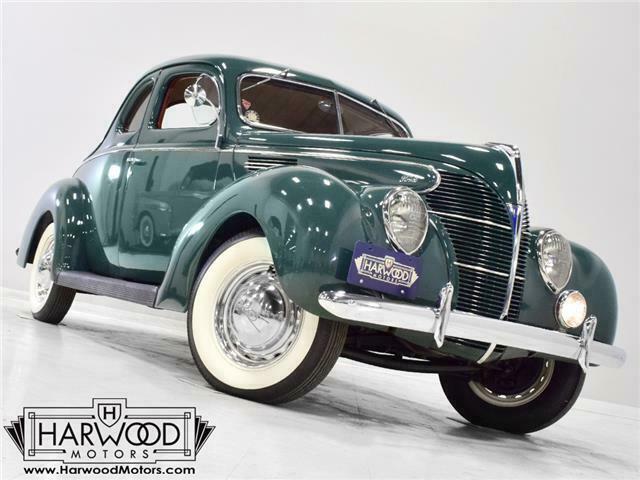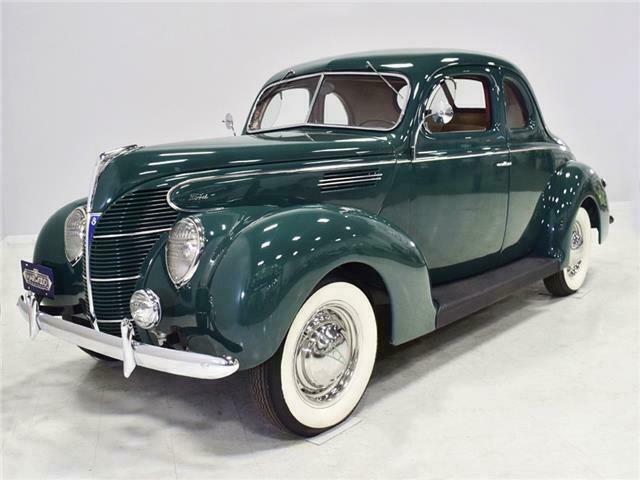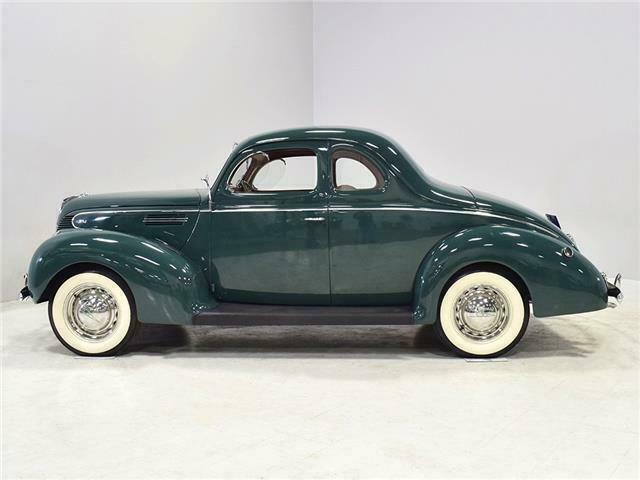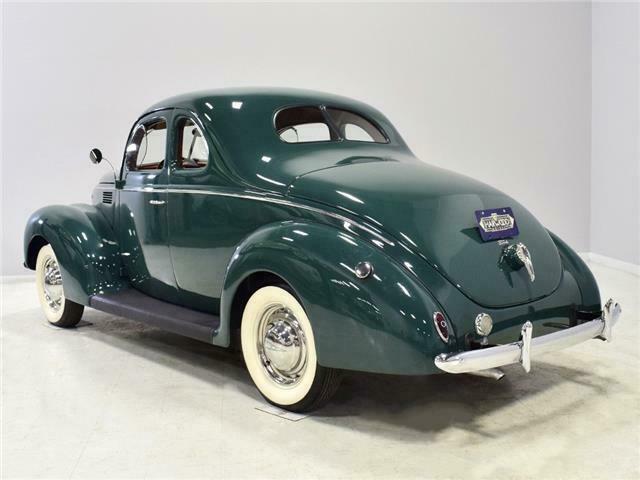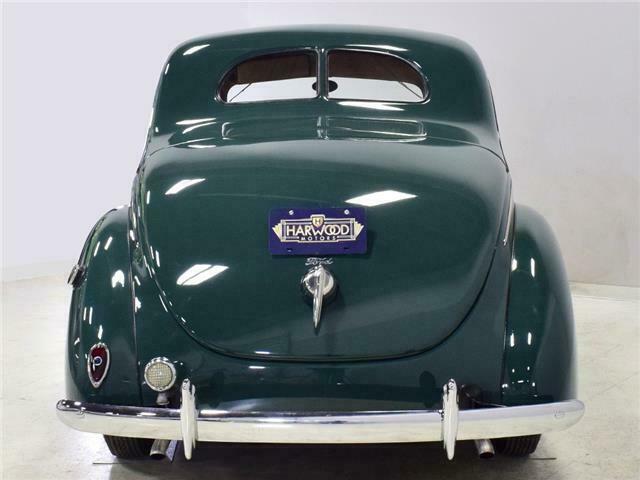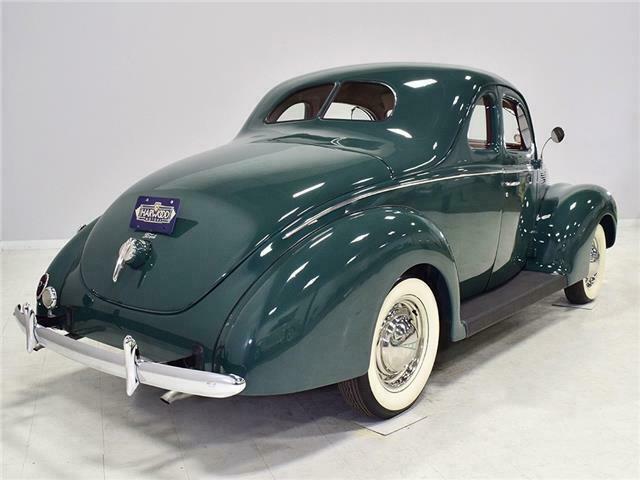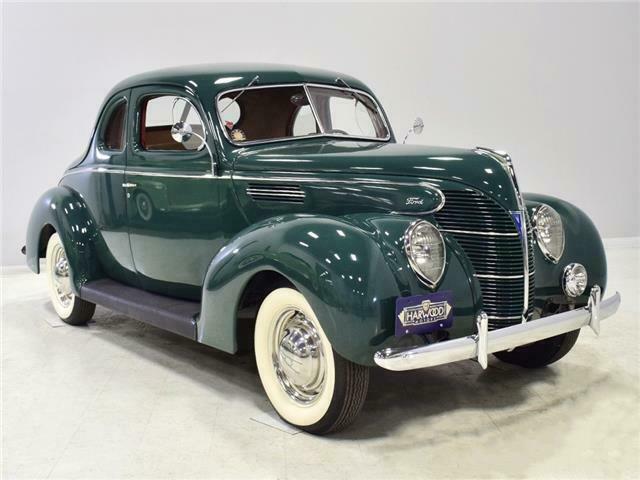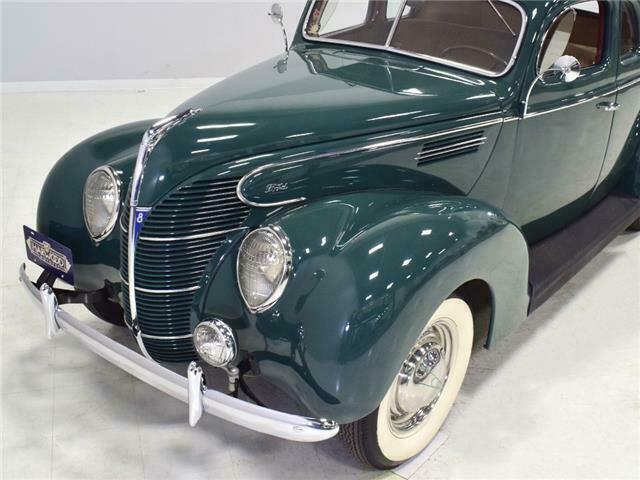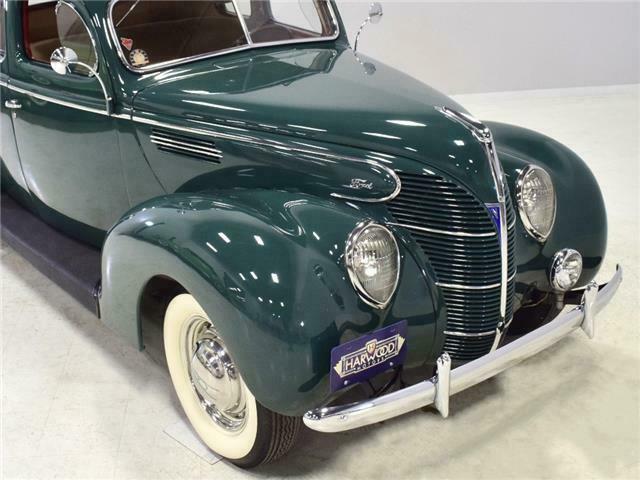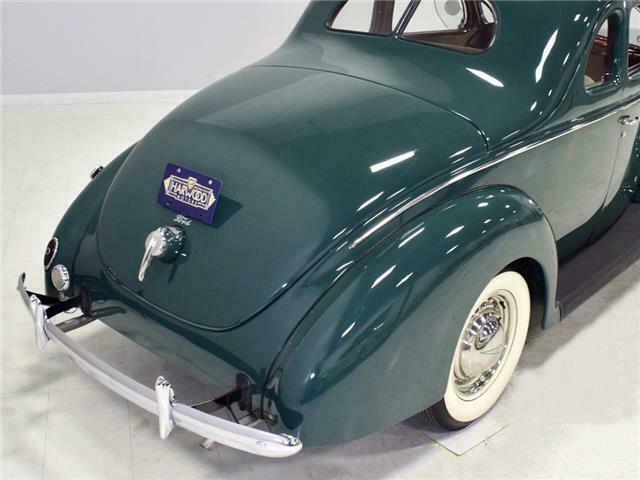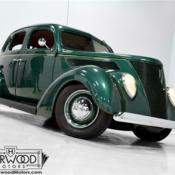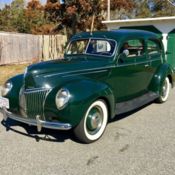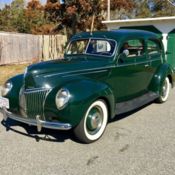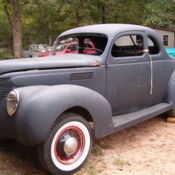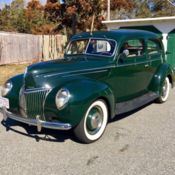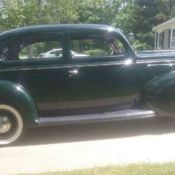1939 Ford Standard Business Coupe 41973 Miles Dartmouth Green 221 cubic inch V
Technical specifications of Ford Standard Business Coupe 1939
| Price: | US $37,900.00 |
|---|---|
| Condition: | Used |
| Item location: | Local pick-up only |
| Make: | Ford |
| Model: | Standard Business Coupe |
| Type: | -- |
| Trim: | -- |
| Year: | 1939 |
| Mileage: | 41973 |
| VIN: | 1835709 |
| Color: | Green |
| Engine size: | 221 cubic inch V8 |
| Power options: | -- |
| Fuel: | Gasoline |
| Transmission: | Manual |
| Drive type: | -- |
| Interior color: | Tan |
| Options: | -- |
| Vehicle Title: | N/A |
| You are interested? | Contact the seller! |
Description
I'm not sure if I think it's a cop-out that Ford used the previous year's Deluxe model as the next year's Standard, but in the case of this handsome 1939 Ford Standard Coupe, it probably created a bit of a conundrum for the new car buyer in 1939. The 1938 styling was gorgeous and although the '39s were different, I'm not sure they were prettier. Art-Deco never worked as well as it does here. We like this green coupe simply... because it's a little out of the ordinary, a bottom-of-the-line model that's been beautifully dressed up and fitted with a Columbia rear axle to make it a fantastic road car. Either way, it's a neat little car that runs and drives extremely well. This one isn't quite as nice as the show-winning 1940 Standard Coupe with the Mullins trailer we had a few months ago, but it's not far off. Thanks to a fresh cut-and-buff in our own shop, the single-stage Dartmouth Green paint shines up beautifully. I love the teardrop-shaped headlights, the hood ornament that also doubles as the hood latch, and the single taillight out back. Even the lone fog light up front delights me. Finish work is quite good and I have to say I was pleasantly surprised by the sound of the doors closing--most cars of this vintage have lost the pleasing "THUNK" of a wood-bodied car and ended up with a cheap-sounding "THWAP." Not this little Ford, which makes a somewhat modern-sounding THUMP when it closes. It's very satisfying and like I said, it's been a while since I've been surprised by something good that a car does. The restoration is probably 10 or 15 years old at this point, but it's been quite well maintained and even the chrome and pot metal pieces are in excellent shape, with crisp detailing—look how the nose badge neatly advertises the 85 horsepower flathead under the hood. Nice! The tan mohair interior is where you can see a bit of age, mostly on the driver's seat where there's some light wear but nothing that warrants attention. The Standard was, well, standard, so there's seating for two and not a lot of frills. On the other hand, you get a pair of handsome round dials for the gauges, nice woodgraining on the dash, and a big steering wheel that makes this car feel agile. Nothing surprising from this Ford, which has the usual rubber mat, with upgrades including the aforementioned Columbia rear end, a set of accessory gauges under the dash, and add-on wind wings that are attractive as well as functional. The original speedometer and ammeter are operational, and the auxiliary dials handle monitoring of oil pressure and temperature. The fuel gauge moves, but its accuracy is suspect, which shouldn't be surprising. The truck driver who brought the car in thought it was originally owned by a moonshiner because of the compartment behind the seat, but I had to burst his bubble and tell him, no, that's how all Standard coupes were built and it is likely why they were popular with traveling salesmen. There's also a giant trunk, complete with a matching full-size spare tire. The engine is the same 85 horsepower 221 cubic inch flathead V8 we've all loved for years. This one runs beautifully and always starts without any fussing with just a little bit of choke. It's completely stock save for a dual exhaust system and includes an electric fuel pump to help with starting and warm days. Correct details include the Ford Green paint, Ford script hoses, and a Stromberg 97 carburetor on top. It still makes 6 volts of electricity and good oil pressure, and idles with a smooth V8 burble from the twin tailpipes. Clutch take-up is easy with none of the usual flathead chatter, even in reverse, and hydraulic brakes were finally included on 1939 Fords. It runs ice cold, so no worries about flathead fever (on a cool spring day, I couldn't get it to go above 150 degrees) and in both high and low range on the Columbia, there's plenty of power on tap to make this car comfortable in today's traffic. It's punchy! The chassis shows signs of a quality frame-off restoration and not a lot of use, and the Columbia 2-speed rear end makes for a pleasing cruiser. It's a retro-fit, not original equipment, and uses the electrical actuator from a post-war car. Push in the clutch, hold the switch in either the high or low position, and watch the speedometer change and listen for the clunk. We usually leave it in high range, which is just fine for most driving and it'll cruise easily at an indicated 65 MPH. I believe those tube shocks were retrofitted (fronts are still lever-action units) and the dual exhaust uses proper Smitty mufflers for the right flathead sound. Those first-year hydraulic brakes are surprisingly effective and steering is light enough that just about anyone can handle this car without worries. Pretty cream-colored wheels wear chrome spider hubcaps that look dynamite inside the 6.00-16 wide whitewall tires. These are enormously likable cars. If you don't have a flathead Ford in your collection, you're really missing out. This one is a little unusual, very attractive, and the restoration has mellowed enough to make it a first-class driver that can be shown with pride. Add in a few options and upgrades, and you get a car that's just a joy to own no matter what you're doing with it. Call today!
